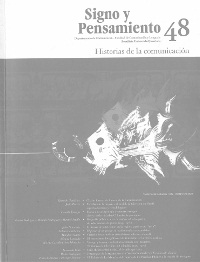Abstract
Chilean cinema is a discursive field of the audiovisual industry, still in development stage. Its hi story is loaded with vagueness and multiple beginnings that often break at the outset. It is a kind of cinema committed to social issues, which ar the same time is nor foreign to alienation and censorship from above. It is an artsy type rhat aspires to seem industrial. Chilean cinema narrates from the third world, while 98% of the country's internal consumption (at peak times) pertains to US productions. In other words, it has formed through the absolute sel f-management ofits symbolic capital. Ir is a cinema that is raising ¡rs new breed of direcrors rhrough books and cult movies, direcrors thar seek to understand their role in this industry that roday, with the passing of time, holds audiences captive. It is a cinema rhat ar times walks next to the State, and on occasions solitude becomes its only companion. Lastly, it is a type of cinema founded on its creativity, its self-discovery, and rhe penchant for rranscending ¡ts own vocaríon - understanding, little by little, rhat ¡ts aggregate va lue líes with ¡ts local histories.This journal is registered under a Creative Commons Attribution 4.0 International Public License. Thus, this work may be reproduced, distributed, and publicly shared in digital format, as long as the names of the authors and Pontificia Universidad Javeriana are acknowledged. Others are allowed to quote, adapt, transform, auto-archive, republish, and create based on this material, for any purpose (even commercial ones), provided the authorship is duly acknowledged, a link to the original work is provided, and it is specified if changes have been made. Pontificia Universidad Javeriana does not hold the rights of published works and the authors are solely responsible for the contents of their works; they keep the moral, intellectual, privacy, and publicity rights.
Approving the intervention of the work (review, copy-editing, translation, layout) and the following outreach, are granted through an use license and not through an assignment of rights. This means the journal and Pontificia Universidad Javeriana cannot be held responsible for any ethical malpractice by the authors. As a consequence of the protection granted by the use license, the journal is not required to publish recantations or modify information already published, unless the errata stems from the editorial management process. Publishing contents in this journal does not generate royalties for contributors.


